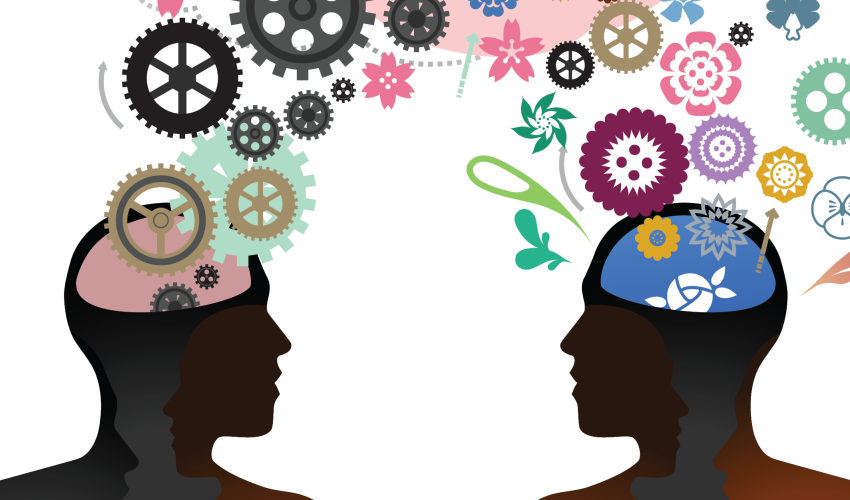We talk to mental health professionals to understandthe sudden but unprecedented ‘spike’ of ADHD among adults
By Ravi Raj
For a long time, attention deficit hyperactivity disorder (ADHD) was considered a pediatric disorder that fades away gradually as one transitions into adulthood. Although the historical literature on symptoms of what we currently identify as ADHD dates back more than two centuries ago, it wasn’t until 1987 that the very term was coined and formalised. But it would take another three decades or so for the stigma entrenched with this neurodevelopmental disorder to slough o , albeit not in its entirety. Coincidentally, during this phase, adults surpassed children as the primary consumers of ADHD medication. As per JAMA, a peer- reviewed medical journal published by the American Medical Association, the diagnosis of ADHD in adults has doubled between 2007 and 2016. So, what explains this steady rise of ADHD among adults?
Primarily, the rise in the number of diagnosed patients is attributed to the growing awareness about the disorder thanks to a coterie of content creators who are sharing informative videos on social media. Instagram and TikTok are inundated with posts and videos tagged under #ADHD. From the pop sensation Justin Timberlake and U.S. Olympic champion Simone Biles to renowned director Greta Gerwig, numerous high-profile celebs have also spoken about their struggles of living with ADHD leading to greater social acceptance.
“ADHD was always there but there was a significant lack of awareness, because of which it remained undiagnosed in many cases,” says Dr Nahid Dave, a consultant psychiatrist based out of Mumbai. “Now that ADHD content has become a major trend across social media platforms, people are becoming more aware of the symptoms, many of which they find very relatable,” she adds. The ubiquitous availability of resources related to ADHD has made it easier for people to manoeuvre through the corridors of uncertainty. They don’t always need to contact professionals at the slightest of inconveniences, for it’s not hard to find people with lived experiences and willingness to help in online communities.
Dr Ritwick Chatterjee, who runs Aarambh Mental Health Clinic in Pune, says that a lot of young adults frequent forums on Discord and Reddit, where their queries are sincerely answered by other members who have undergone similar diffculties. “Those with lived experiences also guide adults toward the right doctor, and there’s a lot of good resources available online,” says Chatterjee.
THE CONTRIBUTION OF MODERN SOCIETY
As the demarcation between work and life outside has almost eroded, workplace stress has shot through the roof, severely impairing our functioning. The frenetic, fast- paced work environment mandates a worker to maintain a sustained focus, the ability to seamlessly juggle between different types of work, and the pressure to adhere to multiple deadlines. Moreover, the precarity of work creates an environment where there’s a constant need for an individual to self-optimise their life, which increases the chances of ADHD diagnosis. “The workload today’s adults are facing is significantly higher than what we faced twenty years ago, and that’s one of the several reasons leading to the growth of ADHD cases,” says Chatterjee.
Dave also acknowledges the influence of external pressures, stating that the high expectations individuals put upon themselves also make it more stressful. “There’s nothing wrong with achieving more, chasing your aspirations but the diffculties arise when underlying symptoms of ADHD remain undiagnosed for an extended period.”
IS SELF-DIAGNOSIS THE WAY?
While the cadre of content creators has played an instrumental role in destigmatising the disorder, their lack of expertise and formal training may also lead to the perpetuation of myth, and a rather simplistic understanding of the condition. Some of the symptoms like inattention, procrastination, or living in a messy environment are so entrenched but they’re not necessarily the signs of ADHD. Since these conditions are so relatable, many immediately conclude they have ADHD. But even depression makes a rather trivial job look insurmountable. “At least five features of inattention and hyperactivity need to present to get diagnosed with ADHD,” warns Chatterjee.
Because of an absence of proper histological biomarkers, the diagnosis is mostly reliant on questionnaires, clinical interviews, and multiple other evaluations. There’s no fixed path. Dave says that questionnaires are not of much help nowadays since people already consume so much ADHD content on the internet that their answers might be biased. The IQ evaluation is another way of finding out. “Although there’s no correlation between IQ and ADHD, there are certain parameters within the IQ test, which indicate the possibility of the disorder, and you cannot fake this, unlike the questionnaire,” adds Dave.
Chatterjee doesn’t dismiss self- diagnosis, but he isn’t entirely convinced either. “Reading about it is always good for awareness, but it’s also the question of where you’re reading from. A simple Google search never shows you the most accurate result, but the most popular one. So, we tend to get a lot of inaccurate information too,” he points out, adding that professionals are still a drop in the ocean when it comes to creating content around the disorder.
WHEN TO GET DIAGNOSED?
ADHD is much more than a mere distraction; it’s a serious disorder that adversely impacts our cognitive abilities and manifests itself in numerous ways. It’s not a black-and- white disorder but a whole spectrum. “There are three degrees of severity”, says Dave. “If you have mild ADHD, a little bit of organisation, planning, making to-do list, working in short bursts, and focusing on yourself will help a lot, and you don’t have to go for medication. However, if it’s moderate or severe, it may cause disability, robbing away the ability to function throughout the day, one should seek out professional help,” advises Dave.
What Is ADHD?
National Institute of Mental Health defines ADHD as “a developmental disorder associated with an ongoing pattern of inattention, hyperactivity, and/or impulsivity.”
Reproduced with permission from Mansworldindia.com













